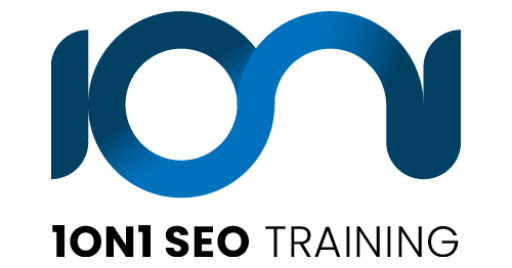An SEO strategist's primary role is to increase website traffic by employing standard (or sometimes unconventional) strategies in search engine optimization. An SEO strategist's duties include the following.
Keyword Research
The SEO process relies heavily on keyword research. Keyword research helps focus on the terms a user types into a search engine to get specific information or a specific product.
Finding the most searched-for keywords relevant to a client's industry and company is one of an SEO strategist's primary responsibilities.
A company's website's keyword research is mainly handled by an SEO strategist or an SEO strategist with the help of other SEO specialists who may be tasked with deploying the keyword data by writing on-page copy. They find the keywords the company should use in its SEO content while researching.
On-Page and Technical SEO
Technical SEO is the practice of conforming a website to the standards of modern search engines to boost its organic search engine rankings. Essential aspects of technical SEO include site architecture, indexing, rendering, and crawling. Technical SEO ensures that a website is fully accessible to human readers and search engine spiders.
An SEO strategist boosts website traffic by improving its on-page and technical SEO. An SEO strategist employs on-page optimization strategies to increase organic search traffic. An SEO strategist's main job is to ensure that each page on the website is optimized for specific search terms. The SEO strategist employs both on-page and technical SEO strategies to increase the proportion of genuine search traffic.
Analytics
An SEO strategist performs data analysis to glean insights that can be used to make the right decisions. To gain a fuller understanding of the situation, the SEO strategist must first model, gather, and then analyze SEO data. A wide variety of data analysis techniques and procedures can be utilized depending on the field and the purpose of the research.
SEO strategists utilize site traffic data from tools like Google Analytics to learn which search terms or web pages bring in the most visitors, sales, and leads for their respective companies. SEO strategists may make more informed decisions regarding keyword targeting and where to focus their optimization efforts with the support of data analysis.
What Are the Essential Skills of An SEO Strategist?
The education and experience requirements for an SEO strategist vary widely. For instance, they may have a programming background and are thus able to zero in on technological optimization.
The number of companies conducting at least some of their business online contributes to expanding the online marketing sector. However, business success requires that a company be easily found through the major search engines.
There are now more than a billion websites, all needing to compete for visibility in SERPs. You want people to associate your brand with the 68% of online experiences that start with a search engine. It is no surprise that companies of all sizes now require the services of professional SEO strategists.
It's possible that there are also persons with extensive backgrounds in related fields like creative work who still do well as SEO strategists. SEO strategists need to be well-versed in how search engines work.
Below are some critical skills found in the best SEO strategists:
• Analyzing traffic and statistics
• Conducting in-depth keyword research proficiently
• A/B testing of web pages
• The ability to create organic backlinks for websites
• Conducting competitor analysis
• Optimization for local and regional Google results
• Making compelling CTAs
• Effective collaboration with authors and other creatives
• Some knowledge of HTML, PHP, etc.
• Experience in CMS like Joomla and WordPress
• Knowledge of ranking strategies
• Knowledge of standard and cutting-edge SEO strategies
• Knowledge of the many factors that contribute to the success of an SEO campaign.
Google Analytics and Open Site Explorer are just two of the many SEO analysis tools at the disposal of a seasoned professional. These are useful for developing a comprehensive strategy. SEO strategists are always looking into the newest search engine improvements of vital ranking algorithms. They also verify the impact the alterations will have on their clientele.
SEO strategists need to be both creative and technically proficient. Getting a good Google page rank depends on a lot of interconnected factors. An SEO strategist must be highly skilled and multitasking to make this happen.
Below are some more typical responsibilities of an SEO strategist once they start working on a website:
• Producing high-quality content geared toward specific audiences.
• Pictures and graphics should be included to make the pages more aesthetically attractive.
• Strategically using keywords in the article's title and body.
• The importance of a mobile-friendly website can't be overstated.
• The significance of high-quality backlinks
• Create citations to establish credibility in your community.
• Should be able to draw customers from a wide range of channels.
• The content you produce must be of high quality and easy to read.
• The ability to investigate current algorithmic developments is required.
• Excellent interpersonal and customer service capabilities
Typically, clients do not have a great understanding of how SEO works. Therefore, they will entirely rely on the SEO expert's talent and comprehension of the process to simplify complex concepts for the rest of the team.
What are the Duties of an SEO Strategist?
Are you looking to work with an SEO strategist sometime in the future? Below are some of the primary responsibilities of an SEO strategist:
• We are conducting keyword analysis that aligns with the client's business objectives to improve existing content and unearth untapped avenues for growth.
• I am coordinating the site's structure and pages with the results of thoroughly examining the data gathered.
• Must propose and carry out plans for expanding content. Everything you do should be working toward your SEO goals.
• XML sitemaps and other webmaster tools can be used to generate project reports.
• Help brainstorm materials like articles, posts, case studies, etc.
• Carry out link-building initiatives in tandem with the client's SEO goals.
• Help develop content strategies while keeping the end goals of search engine optimization in mind.
• Maintain your lead with up-to-date knowledge of search engine optimization, social media, and internet marketing techniques.
• Utilize various resources to bolster the client's social media approach.
• Maintain vigilance over client-focused reporting tools and analytics dashboards.
• Monitoring search and results performance across all channels.
• Keeping the team and the business owner updated on the project's progress and status.
• Collaborate with your team to achieve your client's objectives.




